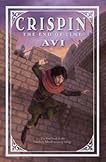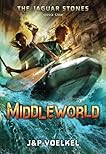Joshua Henkin’s Ten Terrific Novels About Writers, Writing, and the Writing Life
from Conversational Reading, accessed 10/23/10
(Today we have a guest post from novelist Joshua Henkin. Henkin’s novel, Matrimony, about MFA students and writing about writing (among other things), is out in paperback.)
Opening Disclaimer: These are ordered randomly and not to be construed as a Top-Ten list or even as a Ten-Personal-Favorites list, just ten works of fiction I plain like and thought I’d share with you at Conversational Reading.
Wonder Boys by Michael Chabon. Often forgotten in the publishing hoopla surrounding Mysteries of Pittsburgh (Chabon was just out of college when MOP was published) and the attention he has gotten for his later novels are some finely wrought stories collected in A Model World, and The Wonder Boys, a high-wire comedic novel that takes place at a writing conference and is said to be based loosely on the life of Chuck Kinder, one of Chabon’s undergraduate writing professors. This is difficult material to mine afresh—making fun of writing conferences is both easy and familiar—and, in general, it’s hard to do farce without becoming, well, farcical. But Chabon does it. Some outrageous things happen, but Chabon’s language and narrative are always under his control.
The Information by Martin Amis. Amis is one of the writers I mention when my writing students complain about unlikable characters. Has Amis ever written a “likable” character? (Actually, I like a lot of Amis’s characters, but that’s another matter, and the whole question of likeability tends to be a red herring.) Although his work is uneven, the best of it is first-rate. I would include The Information in that category, a novel about literary success and failure, and about envy and backstabbing and other such things. On those occasions when I’m interviewed and asked what Matrimony is about (often by someone who hasn’t read the book: if they’d read it, they wouldn’t need to ask), I think of Amis’s protagonist, on book tour, who responds to one interviewer (I’m going on memory here) in the following way: “The book is what it is. All two hundred thousand words of it. If I could have said it in fewer words, I would have.”
Men in Black by Scott Spencer. Speaking of book tours, Spencer’s novel chronicles the personal and professional woes of Sam Holland, a literary novelist whose books don’t sell and who writes a pseudonymous book about UFOs that catapults him to literary stardom. Although the send-up of literary success is often amusing, what distinguishes Spencer’s book is less the material about the writing life than Spencer’s portrait of middle-aged-white-guy anxiety/crisis/desperation, a subject done so often it can be tiresome, but which Spencer does much better than most, certainly much better than a lot of writers who have gotten more attention than he has. (Another novel that does this really well, though not a book about writing, is Preston Falls by David Gates. Gates’s Jernigan is very good too, but I like Preston Falls better). Spencer may be best known for writing an apparently good book (I never read it) that got turned into such a terrible movie it cast a negative retroactive light on the book itself. I’m talking about Endless Love (a movie that, incidentally, marks Tom Cruise’s film debut), the 1981 picture starring sixteen-year-old Brooke Shields, a year after her soft porn performance opposite Christopher Atkins in Blue Lagoon. When I tried to reassure a writer friend of mine, anxious over the way the movie version of his book was turning out, that even a bad movie helps a book, he said, “Just as long as I don’t get Scott Spencered.”
“Family Furnishings” by Alice Munro. Not a novel, but there’s more packed into a forty-page Munro story than into most 400-page novels. Reading a Munro story is like peeling an onion and finding layer after layer beneath it: no story of hers is quite what it seems to be at first. At Brooklyn College’s MFA program, where I teach, the ten-or-so-member faculty was asked to make a list of ten works of fiction that were most influential to them, and Munro was on more lists than any other writer. “Family Furnishings,” like a number of recent Munro stories, chronicles the writing life and feels closer to home than some of Munro’s earlier work. It’s a stunning story. There’s a powerful and shocking moment in which the writer protagonist uses a character from her own life for the purposes of her fiction, to disastrous consequences. The story is also wonderful at depicting the pain that goes hand in hand with outgrowing your small-town roots, and your family along with it. For more on “Family Furnishings,” have a look at Lorrie Moore’s review of Hateship, Friendship, Courtship, Loveship, Marriage in the New York Review of Books.
Atonement by Ian McEwan. Speaking of the New York Review of Books, John Banville, in his evisceration of Saturday, which he called “a dismayingly bad book,” also said that “the first half of Atonement alone [will] ensure [McEwan] a lasting place in English letters.” And the second half of the book isn’t too bad, either. Atonement was a great novel long before it got turned into a blockbuster move and thereby earned a spot on the reading list of every book club in the country, but this is a case where the commercial success is well deserved. My wife, a better (and certainly more-difficult-to-please) critic than I am (when she likes something I’ve written, I know I’m on safe ground), stayed up all night during our honeymoon in an un-air-conditioned hotel room in Ho Chi Minh City reading Atonement from cover to cover. I’d never seen her do that before, and I haven’t since. It’s impossible to know, of course, what books from today will be read a hundred years from now, or if people will be reading books at all, but if I were a betting man, I’d put my money on Atonement.
The Hours, by Michael Cunningham. Cunningham, who in his most recent novel Specimen Days has done for Walt Whitman (Specimen Days is divided into a ghost story, a thriller, and a post-apocalyptic tale, all presided over by the figure of Whitman) what he did for Virginia Woolf in The Hours, which won the Pulitzer in 1999. Essentially three novellas linked through the figure, life, and work of Virginia Woolf, The Hours does many things wonderfully, not least of which is the way Cunningham captures Woolf’s own struggles to find the right opening for Mrs. Dalloway. And his description of Woolf’s suicide is utterly haunting. I’ll never forget it.
Crossing to Safety by Wallace Stegner. After reading Matrimony, a number of critics and interviewers asked me whether I’d been influenced by Crossing to Safety. I hadn’t been consciously, but books have their way of worming themselves into your subconscious, so I went back and reread it, and, Sure enough. In a mere 350 pages, Stegner chronicles the life of two couples over the course of more than fifty years. It’s a book about the writing life and about academia, but also about friendship, and the ways success and failure can inflict damage on a person’s friendships. From a craft perspective, too, the novel is extremely interesting. Take a look at the way Stegner uses what I’d call a speculative/hypothetical point of view.
Starting Out in the Evening by Brian Morton. Morton has carved out a niche for himself, writing elegant, quiet novels about writers and the writing life. His prose is filled with feeling, and in his recent novel Breakable You he writes extremely powerfully about the despair surrounding a child’s illness. I admire all his books, and Starting Out in the Evening is probably my favorite. It was recently turned into a movie starring Frank Langella and Lili Taylor.
Blue Angel by Francine Prose. When I sat down to write the writing workshop scenes in Matrimony, I went back to the writing workshop scenes in Blue Angel, having remembered how vividly they were done. I got caught up in the book and reread the whole thing. It’s a wonderful, lacerating academic satire that skewers everything about academic and writing life, most especially P.C. culture. For another Francine Prose writing book, this one not a novel, read Reading Like a Writer: A Guide for People who Love Books. It’s a high-level, sophisticated exploration of the way a writer reads, and, unbelievably, it found its way onto the New York Times Bestseller list. Or perhaps not so unbelievably: a recent USA Today poll revealed that 82 percent of Americans either have written or would like to write a book.
The Blue Flower by Penelope Fitzgerald. Fitzgerald’s novel, which is set in late-eighteenth-century Germany, is based on the life of a young philosophy student who will eventually become famous as the Romantic poet Novalis. It’s about a brilliant young man who falls in love with a dolt of a twelve-year-old girl, to the horror of his friends and family. To my mind, it’s a near-perfect book, and though it was clearly assiduously researched, Fitzgerald wears her knowledge lightly. The book won the National Book Critics Circle Award in 1997 over finalists Underworld by Don Delillo, Dreams of My Russian Summers by Andre Makine, Cold Mountain by Charles Frazier, and American Pastoral by Philip Roth. There were a few grumblings at the time (Underworld had been the favorite in some circles), revived more recently when someone (one of the judges? I can’t remember exactly) suggested that The Blue Flower had been a compromise choice and that a smaller, less ambitious novel had won out over a book that swung for the fences. No disrespect meant to Delillo or any of the others, but The Blue Flower, though it comes in at just over 200 pages, is neither small nor unambitious. Would people have said the same thing if the writer had been a man?
Subscribe to:
Post Comments (Atom)































No comments:
Post a Comment